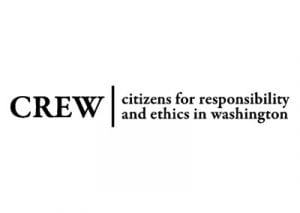RESEARCH QUESTION
What is the current landscape of dark money and shadow governance groups for governors holding office as of January 31, 2019?
BACKGROUND
The aftermath of Citizens United v. FEC (2010) brought with it the resurgence of dark money and shadow governance in politics, specifically in state-level elections. A politician utilizes dark money or shadow governance when they benefit from the actions of a nonprofit organization (given a 501(c) designation) that does not disclose who its donors are. Legally, these organizations are not required to disclose their funding sources, leading to millions of anonymous dollars being spent to elect politicians and promote their agenda. While there is some research regarding dark money on the federal level, there is a notable absence of literature on the influence of these organizations in state politics, especially in gubernatorial races.
CURRENT RESEARCH
In 2017, Citizens for Responsibility and Ethics produced a report on the state-level dark money and shadow governance groups after the 2016 gubernatorial election cycle. This report identified 30 nonprofit groups linked to 19 different governors. While historically, public scrutiny as it related to dark money has focused on the federal-level, this report emphasized that political spending by undisclosed donors was also active in state-level politics. These groups were being used both to fund elections and to advance the agenda of governors once elected.
For this research project, our research team created a new report, updating the list of active state-level dark money and shadow governance nonprofits for the governors elected in 2018. The research process for this report attempted to closely follow the methodology used in the original publication. The findings in this updated version are the product of investigations of all state governors during the 2018 midterm election cycle. Over the course of the 8-week fellowship, the research team replicated the search process employed in the release of the original report, which involved a search of news outlets using the Nexus Uni database. In order to refine the search, the team used the same keywords identified in the original, including “dark money,” “nonprofit,” “501(c)(4),” and “tax exempt” to find organizations that could be classified as ‘dark money’ or ‘shadow governance’ groups. Following the search, the research team compiled additional information about each group from a number of sources to determine whether the organizations qualified as dark money or shadow governance entities. All of the above information was analyzed to determine whether or not a nonprofit organization met two key criteria of a shadow governance or dark money group.
In addition to the initial conditions necessary for consideration, four auxiliary criteria were used to identify connections to governors or successful gubernatorial candidates elected in 2018. This process produced a set of 11 groups tied to 11 state governors. In comparison to the original report, the partisan breakdown of dark money in the updated version was notably more balanced; of the 11 groups identified, Five of 11 were tied to Democratic Governors currently in office, whereas just 7 out of the 30 groups identified in the 2018 report fit this description.
Project Partner: Robert Maguire, Citizens for Responsibility and Ethics in Washington
Faculty: Stan Oklobdzija, Fellow and Zachary Courser, Co-Director
Policy Lab Summer 2020 Research Fellows: Jonathan Miller and Gait Nairin
Policy Lab Manager: Zane Tolchinski


Please request the report from Stan Oklobdzija at stan@cayimby.org